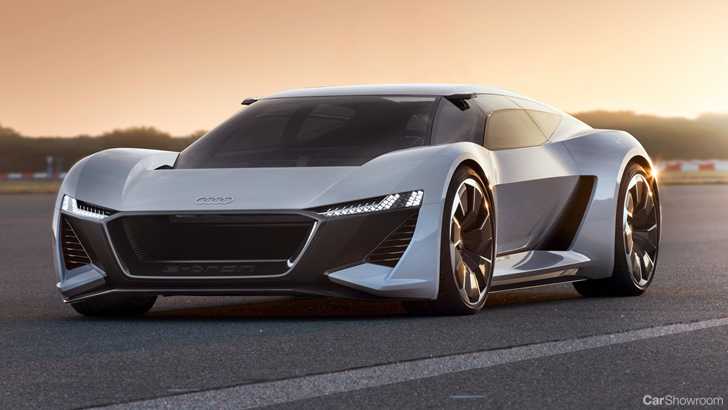Audi, and their parent company Volkswagen, have been on a sustained charge toward the end goal of total supremacy over what they perceive to be a future filled with fully electric vehicles. VW has the I.D sub-brand while the four-ring automaker calls their EV creations e-tron, replete with superhero movie brand placement deals to - hopefully - get the kids all hyped.
While the electric-only branding has already premiered on the canonical ‘e-tron’ SUV, much more has been planned for this combustion-less roadmap. And according to CAR Magazine, the company has its sights on its flagship sports car, the R8, exclusively powered by a naturally aspirated 5.2-litre V10 shared with Lamborghini.
Paving the way for the e-tron brand, supposedly, will be the GTR, the successor to the Audi mid-engine supercar as both pioneer and beacon to showcase the possibilities that electric propulsion can deliver: silent motoring, insane acceleration, and an end to direct airborne emissions of any kind. Last year’s Audi PB18 e-tron concept, unveiled at the Pebble Beach Concours d’Elegance, provided a near-transparent look into what that could look like.
There has already been much chatter surrounding the possible and looming demise of the R8, which is one of the slower selling models under the Ingolstadt banner as well as the among largest contributors to its collective emissions profile.
To expedite the rollout of the R8’s electric replacement, Audi need only look to fellow VW Group sibling Porsche and their own inaugural production EV, the Taycan sports saloon. Reportedly, much of the e-tron GTR’s tech will be lifted from Zuffenhausen, which does allow us to have some idea as to the Audi’s rough specifications.
The vehicle will retain the same general shape and silhouette of the current R8 along with some telltale cues such as the side blades just aft of the doors. However, it will sit on an all-new J1 electric platform and aluminium monocoque made to maximise battery packaging for a 95kWh solid state array capable of around 500km on a single charge.
Energy will be channelled to a total of three electric motors (one for each rear wheel and the other driving the front axle) for a system output of 500kW. Of course, none of the aural sensations of the outgoing V10 will (or can) be carried over, and top speed will likely be a good deal reduced from the current car.
To make up for those shortcomings, though, Audi engineers are promising some interesting innovations thanks to the solid state battery technology the car will apparently be leveraging, enabling a much more stable and robust energy storage system and can repeatedly perform the sub-2 second century sprint without the hassles needed to safely and reliably coax the same rapid discharges from today’s lithium ion cells.
Much like the Porsche Taycan, the e-tron GTR will also be equipped with high speed wireless charging, allowing it to merely position it itself over a compatible charger to begin topping up the batteries. We’ve yet to see this technology prove its worth in the real world, though, and it seems to be proprietary to Volkswagen.
In terms of timing, the sources tell CAR that the EV supercar can be expected toward the end of 2020, marking the beginning of in-house performance brand Audi Sport’s race to mirror the larger VW Group’s objective of e-mobility and EV world domination.
For more on Audi cars, check out our Showroom.































